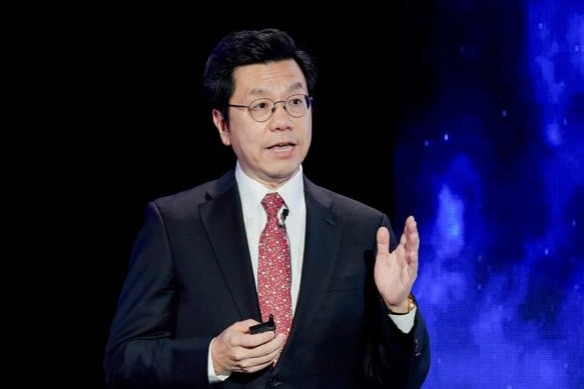Artificial intelligence firm claims advances in sight

Serial technology entrepreneur Kai-Fu Lee said on Monday that the next generation of large models from his artificial intelligence startup 01.AI is expected to challenge the performance of GPT-5 of the US-based, Microsoft-backed Open-AI.
Lee also expressed hopes 01.AI’s more affordable products can “bring China its own GPT moment”.
Lee, founder and CEO of 01.AI and former president of Google China, said that though 01.AI’s next-generation large language model or LLM called Yi-XLarge MoE is under training, it already showed some “competitive performance” against some latest flagship models from international vendors. The startup aims to challenge the performance and innovation of GPT-5, he said.
He made the remarks as his startup unveiled several leads in developing large model products that cost less but perform better on Monday, amid chip shortage challenges faced by domestic companies engaged in training large models.
“While the number of GPUs (graphics processing units) of US AI giants is far more than that of any company in China, one opportunity left for Chinese unicorns (startups valued at $1 billion or more) is to use the fewest chips and the lowest cost to train the best model we can,” Lee said, adding that not every listed company is capable of pouring in countless resources into their ventures and projects like OpenAI have been able to do so far.
Lee said the overseas version of 01.AI’s free productivity assistant Wanzhi, one of its latest Al products that helps users create documents and read presentations, is expected to generate a revenue of 100 million yuan ($13.8 million) in revenue this year. Within nine months, the application has attracted nearly 10 million users and the return on investment is approaching 1, meaning that it is close to making a profit, he said.
“One thing is for sure … what’s more relevant to us is the widespread application and use of AI. I hope that my company can create an AI-first application, like AI TikTok, AI WeChat or AI Taobao.”
To pilot such ideas, the startup developed a more affordable LLM targeted at enterprise users dubbed Yi-Large, which costs 20 yuan for 1 million tokens, which is about one-third of OpenAI’s GPT-4 Turbo.
Lan Yuchuan, head of API platform of the company, said the current Yi-Large model has surpassed GPT-4 in several benchmarks and hopes it can bring China its own GPT moment.
“More importantly, we have a sufficiently strong ability in inference optimization, which can greatly reduce the cost of models, and further help enterprises to make more money.”
As of October, China had developed 254 AI large models with a parameter of at least a billion tokens each, according to a report released by the Beijing Municipal Science & Technology Commission.
Chinese tech companies such as iFlytek, Alibaba Group, Tencent Holdings, Baidu Inc, ByteDance and Huawei Technologies, as well as thousands of startups, are scrambling to develop AI large models. Many of their projects have gathered momentum over the past year.
“The Chinese market is still evolving and growing; it is different from its US counterpart. Chinese companies are seeking alternative solutions to develop AI models that are more suitable in size and capable of widespread application. Never underestimate the vitality of Chinese entrepreneurship,” he said.



